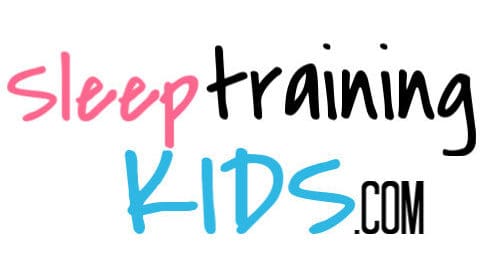One night while up with and nursing a cranky baby, I wondered how much time I’d spent feeding the baby. Because it felt like more than usual. Then, I wondered if the current sleep regression and cluster feeding were related.
Cluster feeding and sleep regressions can happen at the same time, especially during a growth spurt. Increased feeds might cause or happen in tandem with sleep regressions. Management requires a continued focus on healthy sleep habits and feeding the baby.
So if you might be trying to survive both cluster feeding and sleep regressions, keep reading for 20 things you need to know.

When You Usually See Both Cluster Feeding and Sleep Regressions
Cluster feeding usually happens when a child is about to grow – or during a growth spurt. During that same growth spurt, a child may be learning new developmental tasks.
In other words, this time period is perfect for both cluster feeding (to help the kid grow) and sleep regressions.
Common times you’ll notice these are:
| Age | Cluster Feeding | Sleep Regression |
|---|---|---|
| 2-3 weeks | Common | Rare |
| 6 weeks | Common | Rare |
| 3-4 months | Common | Common |
| 6 months | Common | Common |
| 10-11 months | Common | Common |
Most babies are able to outgrow the crankiest aspects of cluster feeding by 3-4 months old. However, some babies keep experiencing an increased level of crankiness when they are growing. As such, they need both the increased calories and cuddles to deal with growing.
My observation: I have noticed that cluster feeding continues as a child grows. My kids become voracious eaters just before they grow. It’s cluster feeding – we just don’t call it that anymore. Now it’s just that they’re hungry because they’re growing – so they eat what they need.
The good news, though, is this: as a child grows, they seem to be able to separate growth spurts (and cluster feeding) from sleep regressions. In fact, they seem to sleep better as they grow – because their body needs that increase in sleep to do it!
In the meantime, though, expect the most noticeable cluster feeds to happen in the evenings. Some babies will feed as often as every hour – for several hours.
After the first set of cluster feeds, the baby should sleep well for several hours. Then they may wake you up for another nocturnal cluster feed – one that has you wondering what in the world is going on!
Why Cluster Feeding and Sleep Regressions Often Go Hand-in-Hand
So why do sleep regressions and cluster feeding go hand-in-hand?
Well, it’s because there’s an awful lot happening for these growing babies. And it’s all happening at the same time. It’s an awful lot to deal with, so it messes with their ability to sleep.
After all, they are:
- Growing a lot (babies usually double their birth weight by 4 months of age).
- Learning new skills and developmental tasks that disrupt sleep.
- Need the increased calories and comfort to deal with all of these rapid changes.
Waking up more at night to feed is disruptive for everyone. And that extra disruption makes everyone overtired – and that lack of sleep can trigger sleep regressions in the baby.
So while your baby is learning how to cope with these new changes, they may need an increased quantity of food, parental patience, and snuggles – especially in the evening.
Cluster Feeding and Sleep Regressions Can Happen to Any Baby
While most babies who experience cluster feeding are breastfed, it can happen with bottle-fed babies, too. There isn’t a correlation between the type of milk the baby relies on and whether or not they’ll experience cluster feeding.
In other words, cluster feeding can happen to any child. And some cluster feeds can be triggered by missing a feed.
When Cluster Feeding is Not Related to Sleep Regressions
Now, for the first few months of a baby’s life, there’s less correlation between cluster feeding and sleep regressions. That’s mostly because until a baby’s sleep pattern has become more adult-like (at about 4-6 months of age), there’s not really a pattern there to disrupt.
It’s a technicality, sure. But during those first four months or so, the baby is just cluster feeding because they have to double their size.
That’s still an awful lot of work! And it’s going to disrupt everyone’s sleep!
However, this isn’t a random chance. It happens for good reasons.
- Most mothers can only go about 5 hours at night without milk supply being affected. The baby needs to feed in order to keep supply levels up.
- The baby does need to double their size over four months – that takes a lot of calories and feeding!
Again, this is all based on a super nit-picky definition.
Cluster feeds do help babies get the calories they need to grow. But it often causes sleep disruption – even if they’re “too young” for it to classify as sleep regression.
Sleep Regressions Caused by Cluster Feeding – a Cry for Attention?
Sometimes cluster feeds and sleep regressions aren’t caused by growth spurts. Instead, they can be caused by a literal cry for attention and love.
Some babies just need more cuddles – and the best way they can get the snuggles they need to grow and develop is by cluster feeding. Here are some common times when babies will cluster feed to get the extra cuddle time:
- You just put the baby down to make dinner.
- Your older kids came home from school, so you put the baby down to greet them.
- Your spouse or partner just came home from work.
- It’s the middle of the night and the baby is hungry.
- Your baby got lonely – no matter what time of day (or night) it is.
- Any time your baby wants more cuddles – day or night.
Knowing that your baby wants more cuddles doesn’t make it easier. It’s still very difficult to balance giving cuddles and cooking dinner.
However, remembering that my baby wanted more attention did make it easier for me to empathize and understand why my now-seated-in-the-swing baby was hollering while I made dinner.
So if your baby is crying for attention, too, remember that. It helps you to deal with the cries better – whether you finish cooking dinner or pass it off to the husband so you can go feed the baby.
Cluster Feeding During Sleep Regressions Requires Balance
When you’re trying to deal with cluster feeding and sleep regressions, balance is the key. And there are two main parts to staying balanced:
- Sticking to the schedule
- Being flexible
Now, it’s hard because sticking to a schedule implies rigidity. And being flexible? Well, that’s like the opposite, right?
Yes and no.
Sticking to your schedule means remembering that your schedule is a goal. It’s a guideline. It’s how you’re practicing life so that you can get everything done. It’s not the end-all, be-all.
Flexibility is recognizing that needs change – sometimes quickly. And it’s meeting those needs as they come along and change. Being flexible means changing the schedule as needed – to make things better for everyone.
For example: When my kids were toddlers, the daily nap was scheduled for after lunch. But sometimes cranky toddlers needed an early nap – so we skipped some playtime to eat lunch early – and get the nap started already.
Being able to balance schedules and flexibility is hard. It takes a lot of practice. And it can get frustrating – especially when you aren’t able to get everything done that you wanted to do.
However, it’s been a huge key to managing both cluster feeding and sleep regressions – and even more so dealing with both of them together.

Earlier Bedtimes Are for Everyone
When you’re dealing with cluster feeding and sleep regressions, early bedtimes are for everyone – not just the baby.
That’s because of two main reasons:
- You’re going to need more sleep to keep your milk supply up (if breastfeeding).
- The baby’s going to be up more, so you’d better get sleep while you can.
Going to bed early can be difficult – especially when you don’t get much alone time with your significant other. But really, they should go to bed early, too. After all, the baby’s going to be waking up everyone in the middle of the night.
So an early bedtime will help your partner get proper rest, too. And then maybe they’ll do better enough to come to help out with diaper duty during the night, too.
Problem-Solving the Cause May Not Be Possible
Now, if you can figure out why your baby is cluster feeding and experiencing sleep regression AND fix it, that’s amazing.
Because, sometimes cluster feeding can be caused by pain – like from teething or an earache. So in those cases, it’s important to use pain medicine (as directed by your doctor) to help fix the problem.
However, there’s not really a way to problem solve or fix growth spurts that are triggering cluster feeds and sleep regressions. The baby just has to grow.
So problem-solving in this case is frustrating – because the “fix” is patience and waiting it out. If that’s the case, hang in there. It will get better. Don’t drive yourself crazy trying to figure out WHY – it’s just part of growing up. It has to happen, so let it happen.
Ask Your Village for Help
Now, dealing with cluster feeding is draining (sorry for the milk pun).
Sleep regressions are also (quite literally) exhausting. Now is definitely one of those times to ask your village for help.
Perhaps that just means telling your spouse to get takeout on their way home from work – because you’re going to be too busy feeding the baby to cook. If that’s what it is? That’s great.
Maybe your friends or family can come over to help cook, clean, or watch the other kids so you can feed the baby and get them down to bed. If so, that’s amazing. Ask for the help – and accept it with grace.
This won’t last forever – even though it sure seems like it right now! So whatever your village looks like, ask them to help.
Try to Adjust Daytime Feeding
During a growth spurt, you may be able to alleviate cluster feeds if you adjust daytime feeding. You can do this in one of several ways:
- Adjust the daytime feeding schedule to give more frequent feedings.
- Adjust the daytime menu to include more volume.
- If the baby is old enough, use solid foods.
- Increase both the frequency and quantity of feedings.
Each of these should also help your baby feel more full, which should help them sleep better. And that should help the sleep regression recovery effort!
Adjust Your Nighttime Expectations
Sleep regressions, on average, last several weeks. Cluster feedings and growth spurts, on average, last a few nights.
So while the recovery from a few rough nights may take a while, this won’t last forever. Remind yourself of this fact as often as you need it.
This is an awful, horrible, rotten, and no-good phase. But it will pass.
Make Time to Cluster Feed at Bedtime
While the baby is growing, plan for cluster feeding. In my experience, I found it often starts at about 5 pm (just in time for family dinner).
So we had a temporary change in the family routine – and added cluster feeds to the dinner-to-bedtime routine. That way, the baby would get all of their calories – and hopefully, sleep well for several hours before beginning another round of cluster feeds.
But if you make time for it, cluster feeds are much less disruptive to the family schedule – and everyone’s sanity. And by building them into the schedule? We found that it made the related sleep regression less awful, too.
Adjust Nighttime Feedings, too
During this time, expect nights to be rough, too. Then, let your baby eat as needed. Let them nurse or bottle-feed on demand.
In my experience, fighting those nighttime feeds only ended up in worsening sleep regressions and prolonged needs for nighttime feeds. But when we went with it? Things resolved much faster.
And then you’re able to get back to a better (and far more sustainable) schedule – that doesn’t involve cluster feeds and sleep regressions.

Consider Co-Sleeping
While you’re in the midst of sleep regressions and cluster feeds, you may want to consider bed-sharing or co-sleeping.
When done safely, co-sleeping can make nighttime cluster feeding easier. And it can make surviving the sleep regression tons easier – because everyone can get back to sleep faster!
Here’s what we did for our daughter: I co-slept with her on a recliner until she was about 6-7 months old. This way, we were able to manage cluster feeds and most of the sleep regressions – and I was able to sleep through most of it! It was so much better than what we’d tried with our other kids.
So if you can find a way to co-sleep safely (or as safely as possible), think about doing so. And, if you’re not sure about it, talk to your pediatrician. Ours was totally on board with the recliner idea.
Keep Realistic Expectations
Look, I’d love to tell you that most babies sleep all night – or that they don’t have cluster feeds and sleep regressions that disrupt everyone’s sleep. But that’s not the case.
Most babies need nighttime feeds. Many babies experience sleep regressions. Very few babies sleep through the night (8+ hours at a stretch) before they’re ready to.
The simple fact is this: somewhere along the way, our society developed a very unrealistic and unhealthy expectation of children’s ability to sleep for long stretches.
But in reality, studies into the so-called “primitive” cultures show that nursing on demand helps alleviate cluster feeding and sleep regressions. And that these moms who nurse on demand do so all day and night – while keeping their infants close at all times. In many cases, these babies are held pretty much constantly – whether that means being held by a mom or a family member.
So if you need to adjust your mental expectations, do it. It’ll make surviving this rough time tons easier.
Consider Pumping Between Feedings
Fact: a cluster-feeding baby needs more calories. They need more milk. And perhaps, if you’re breastfeeding them, you need to up your supply game.
So if you are nursing your baby, you may want to consider pumping between feedings to boost your supply.
You may also want to consider these tips:
- Consider pumping – and then offering the expressed breastmilk in a bottle – to give your sore nipples a break from all of that nursing.
- Pump between feeds earlier in the day, too. If your baby is nursing every hour in the evenings, you won’t want to pump in your short break.
- Think about augmenting nighttime feeds with a bottle, even if you’re nursing the baby. That little bit of extra formula could be the difference.
It’s OK to Use a Bottle as Needed
Look, it’s just fine if you need to use a bottle. You’re feeding your baby – and that’s important.
So if you need to augment cluster feeds with another bottle? It’s the right call to make. Your baby needs more calories and nutrition – and that’s what you’re helping them to get.
This is even the case if you’re primarily nursing your baby.
Example: we tried using formula and bottles to augment feeds during particularly difficult cluster feeding (and sleep regression filled) episodes. Sometimes it helped; sometimes it didn’t. But it gave us the peace of mind that we were doing what we could to help our child grow and develop.
Sometimes, you may find that offering a bottle is the only way to give your chapped and bleeding nipples time to heal between marathon nursing sessions. Or it may be best if you pump and give milk as a way to deal with mastitis or engorged breasts.
It’s okay to try using a bottle. It’s also okay to consider weaning – if that works best for your family.
Consider Weaning if Cluster Feeding is Problematic
Look, if cluster feeding and sleep regressions have become problematic – especially for your milk supply, it’s okay to consider weaning.
First, I’d recommend you talk to a lactation consultant, though. Your supply issue could have a simple fix.
There was one point when I thought that my supply was drying up early. Instead, it turned out that anxiety and sleep deprivation were the issue. Once I was able to focus on taking care of myself, the milk production issue was resolved and I was able to nurse again without a problem.
However, I do have friends and family who did have to wean – for various reasons. They made that choice and it was their best option.
For tips on dealing with weaning and sleep regressions, read my article on it by clicking here.
In any case, if weaning is your best option, make that choice. Then, move forward. It’ll be the best way possible to survive both the cluster feeding and the sleep regressions.

You Can’t Overfeed a Baby While Cluster Feeding
All mothers and babies are different, and you and your baby will work out your own feeding pattern together. … You can’t overfeed a breastfed baby, and your baby won’t become spoilt or demanding if you feed them whenever they’re hungry or need comfort.
NEVER Wake the Baby After a Cluster Feed
Finally, let the sleeping baby sleep. It’s common and normal for a baby to sleep a long stretch after a cluster feed. Let them sleep! Enjoy your free time. After the hours of time spent feeding them, you’ve more than earned it.
Besides, they’ll wake up soon enough – ready to eat again – or just need cuddles while they’re in the midst of this current sleep regression.
So let them sleep – it’s what their bodies need to grow and develop and digest all of that milk – and the best cure for sleep regressions.
